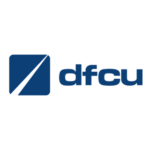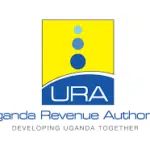Job Description
Job Description
The Consultancy Firm/individual should have excellent experience and good level of understanding on:
a) Early Childhood Development (ECD) more so illustrations and graphics designs based on the five components of the nurturing care framework i.e., To reach their full potential, children need the five inter-related and indivisible components of nurturing care: good health, adequate nutrition, safety and security, responsive caregiving, and opportunities for early learning as explained below:
GOOD HEALTH: Refers to the health and well-being of the children and their caregivers. Why both? We know that the physical and mental health of caregivers can affect their ability to care for the child. Illustrative examples include essential newborn care including kangaroo care for small babies, Immunization of mother and child, Growth monitoring and counselling, Promotion of health and well-being including health care seeking behavior, Prevention and treatment of childhood illness and caregiver physical and mental health problems, Care for children with developmental difficulties or disabilities, etc.
ADEQUATE NUTRITION: Refers to maternal and child nutrition. Why both? We know that the nutritional status of the mother during pregnancy affects her health and well-being and that of her unborn child. After birth, the mother’s nutritional status affects her ability to breastfeed and provide adequate care. Illustrative examples include Maternal nutrition, Early initiation, and exclusive breastfeeding for 6 months, continued breastfeeding after 6 months with appropriate and responsive complementary feeding, Micronutrient supplementation for mother and child, as needed, Adequate physical activity, sedentary behavior and sleep in early childhood, Management of moderate and severe malnutrition as well as overweight and obesity, with emphasis on communicate, stimulate and cognitive ability, etc.
SECURITY AND SAFETY: Refers to safe and secure environments for children and their families. Includes physical dangers, emotional stress, environmental risks (e.g., pollution), and access to food and water. Illustrative examples include Birth registration, Food security and access to clean water, Clean indoor and outdoor air, good hygiene, protecting children from physical punishment, abuse, and neglect, Safe spaces to play, social care services including cash transfer to the most vulnerable families, etc.
OPPORTUNITIES FOR EARLY LEARNING: Refers to any opportunity for the baby, toddler, or child to interact with a person, place, or object in their environment. Recognizes that every interaction (positive or negative, or absence of an interaction) is contributing to the child’s brain development and laying the foundation for later learning. Illustrative examples include At home and in child care spaces/ECD centers: Activities that encourage young children to move their bodies, activate their five senses, hear and use language, and explore, Using daily routines to talk to, play, and interact with baby/toddler/child, Telling stories (including by elders), Exploring books together and reading to the baby/toddler/child, Talking to and with the baby/toddler/child, Smiling, imitating/copying, and simple games (e.g., peek a boo), Age-appropriate play with household objects and people, Quality standards in formal child care spaces, etc.
RESPONSIVE CAREGIVING: Refers to the ability of the parent/caregiver to notice, understand, and respond to their child’s signals in a timely and appropriate manner. Considered the foundational component because responsive caregivers are better able to support the other four components. Illustrative examples include across multiple services and touchpoints: Modelling and encouraging caregivers to make eye contact, smile, cuddle, praise, helping caregivers to notice their child’s cues and respond appropriately (sensitivity and responsiveness) – for example signs of hunger, satiety, illness, emotional distress, interest to play, pleasure, Supporting caregivers to identify and use everyday moments to communicate and play with their child (e.g., feeding, bedtime), encouraging caregivers to develop safe and mutually rewarding relationships with their child (e.g., they enjoy being together, etc.
b.) Education interventions: more so illustrations and design of materials on education in emergencies, focused on Early Childhood Care and Education (ECCE) and home learning approaches, teacher education, school-based psychosocial support, and community-based child support.
c.) Economic Recovery & Development interventions: more so illustrations on livelihoods interventions focused on mindset change, visioning, and household planning, climate smart and nutrition sensitive agriculture, and linking this to childcare and development.
d.) Experience in material development, material illustrations and strong skills in graphic designing contextualized to Uganda, considering refugees and ethnic diversity in the refugee and host communities in Kampala, Yumbe (Bidibidi) and Kyegegwa (Kyaka II).
Qualifications
The lead consultant should possess:
• Bachelor’s degree in art and design or equivalent qualification in graphics design or illustration.
• Bachelor’s degree in early childhood development or education with extensive experience in material design, illustrations and development.
• Extensive experience in developing materials for projects and programs, illustrations of materials and graphic designing for training and communications campaign materials to suit the intended purpose as described in these terms of reference.
• A minimum of 3 years of progressively responsible work experience in graphic designing and illustration of training and campaign materials.
• Experience in making learning cards (visual and otherwise) for children aged 0-5 years is highly desirable.
• Excellent analytical, facilitation, presentation and writing skills in English.
• Ability to interpret, summarize and visualize content in an easy to read, and understand manner.
• Ability to provide and share a sample of similar work done.
Working environment and conditions
The consultant shall be expected to undertake the assignment without necessarily visiting or making field visits to locations of project implementation but rather consult extensively with the project team (IRC and partners) and other existing materials as indicated above to accomplish this assignment. IRC focal point – the Project Coordinator will facilitate any meetings required to bring the consultant to speed with the assignment until completion.
Proposal details and submission time frame
This consultancy assignment is anticipated to start by 23rd August 2023 and end by 30 September 2023. The deadline for submission of the technical and financial proposals and accompanying documents is 5:30pm 20th August 2023. Expression of interest applications should include:
a) Technical proposal with clear understanding and interpretation of the Terms of Reference (ToR), including detailed tasks, recommended methodology summary and proposed schedule, relevant experience, how you meet the profile required and details of time required (maximum 5 pages).
b) Financial proposal, including daily professional fee and any other associated costs for the assignment. The consultant should itemize all costs in Uganda shillings for the duration of assignment. IRC will only cover related costs during the assignment. All costs need to be clearly stated in the bid submission. Please note that payment will be made in Uganda shillings.
c) CVs of prospective consultants and or his/her team.
Gender Equality & Equal Opportunity
• We are committed to narrowing the gender gap in leadership positions. We offer generous benefits that provide an enabling environment for women to participate in our workforce including parental leave, gender-sensitive security protocols and other supportive benefits and allowances. We welcome and strongly encourage qualified female professionals to apply.
• IRC is an Equal Opportunity Employer and we value diversity at our organization. We do not discriminate on the basis of race, religion, color, national origin, sex, gender, age, marital status, veteran status, disability status or any other characteristic protected by applicable law. We will ensure that individuals with disabilities are provided reasonable accommodation to participate in the job application or interview process, to perform essential job functions, and to receive other benefits and privileges of employment. Please contact us to request reasonable accommodation.





